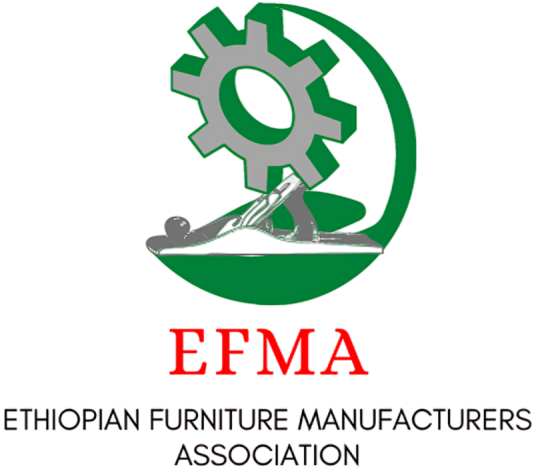Product sustainability has shifted well beyond a PR stunt. It’s an imperative, and one that most Americans are willing to pay a little bit extra to obtain. In its 2021 Business of Sustainability Index, GreenPrint found that 64% of Americans were willing to open their wallets a bit wider to purchase sustainable products. The problem lies in recognizing which products were created with sustainable methods. The survey also found that 74% of people don’t know how to identify when or if a product fell into the “green” category.
Buyers Want Green Furniture but Need Help Identifying It

Given the already high price of furniture, it’s easy to assume that consumers don’t care about whether their furniture is sustainable or not, nor are willing to pay extra for a product that’s already a considerable part of their budget. Yet the furniture market as a whole is experiencing incredible growth, buffered in large part by more home and business consumers purchasing eco-friendly products.
The need for both sustainable products and a way to identify which products fit that category is why sustainability certifications are important, especially for furniture manufacturing. As much as we’d like it to be true, not all manufacturers are honest about the provenance of their products. That being the case, buyers should be aware of the type of sustainability certifications that exist, the authorizing bodies for those certifications, and what logos or certification stamps to look for when shopping for furniture.
11 Sustainability Certifications Every Furniture Shopper Should Know
Companies with valid eco-friendly certifications typically advertise their certification status on their products. Some will carry multiple certs; others may have just one. Here’s a simplified understanding of the most commonly accepted sustainability certifications you should look for when shopping for eco-friendly furniture.
1. Cradle-to-Cradle (C2C)
The Cradle to Cradle Products Innovation Institute is an international organization that offers sustainability certifications to manufacturers through its Cradle to Cradle Certified® program. It assesses products based on how they’re manufactured across five areas:
- Material Health: Ensuring materials are safe for humans and the environment.
- Product Circularity: Enabling a circular economy through regenerative products and process design.
- Clean Air and Climate Protection: Protecting clean air, promoting renewable energy, and reducing harmful emissions.
- Water and Soil Stewardship: Safeguarding clean water and healthy soils
- Social Fairness: Respecting human rights and contributing to a fair and equitable society
Certification requires a rigorous, six-step process. Companies must:
- Determine if the product is appropriate for certification
- Find an Accredited Assessment Body (which can be C2C, but others may qualify) that will test, analyze, and evaluate the product(s) against C2C assessment criteria
- Work with an assessor to compile, evaluate and document the assessment data
- Receive the C2C certification for the product
- Market the products to display the certification status
- Report on product progress to re-recertify every two years
Particularly given the last point, buyers who see a C2C certification should check the date. If it’s more than two years old, the product is no longer certified.
2. ECOLOGO
Infon
ECOLOGO® Certified products are those which are certified by the highly-recognized global certification company, UL. The ECOLOGO certification is available for companies intentionally attempting to reduce the environmental impact of their products. To note, UL has been in the product certification business since 1894, making it one of the most trusted certification organizations in the world.
The ECOLOGO certification is available for the following broad product categories:
- Building and construction materials (such as heating and cooling systems, carpet, and surface coatings)
- High tech and office products (such as office machines, digital cameras, and portable electronics)
- Mineral exploration products
- Paper and plastic products
- Personal care products
- Renewable energy products
- Toys
- Commercial Car Wash products
The certification process is robust. According to UL, “Products achieving UL ECOLOGO Certification follow the evaluation of multiple criteria throughout a product’s life, including energy use, waste disposal, and toxic reductions, among other areas.”
3. Forest Stewardship Council (FSC)
The FSC is a non-profit organization focused on sustainable forest management practices. To that end, it offers certifications for product manufacturers that utilize wood products within their supply chain. Companies that are concerned about sustainable forestry and which emphasize this in the manufacturing process can apply for this certification. FSC will assess the entire supply chain to identify whether the products meet its standards.
Furniture manufacturers, for example, will likely want to apply for the company’s Chain of Custody Certification, which verifies that the products separate sustainably-grown wood materials from non-sustainably grown wood materials, such that there is no mixing and matching in the construction process.
4. Greenguard & Greenguard GOLD
Another eco-friendly product certification from UL, Greenguard and Greenguard GOLD certifications are given to product manufacturers that produce products with low chemical emissions. The standard is set by UL, and products are assessed with a rigorous and scientific audit. For furniture manufacturers, this means furniture that produces low chemical emissions indoors, a critical product safety design.

